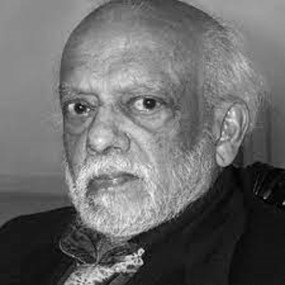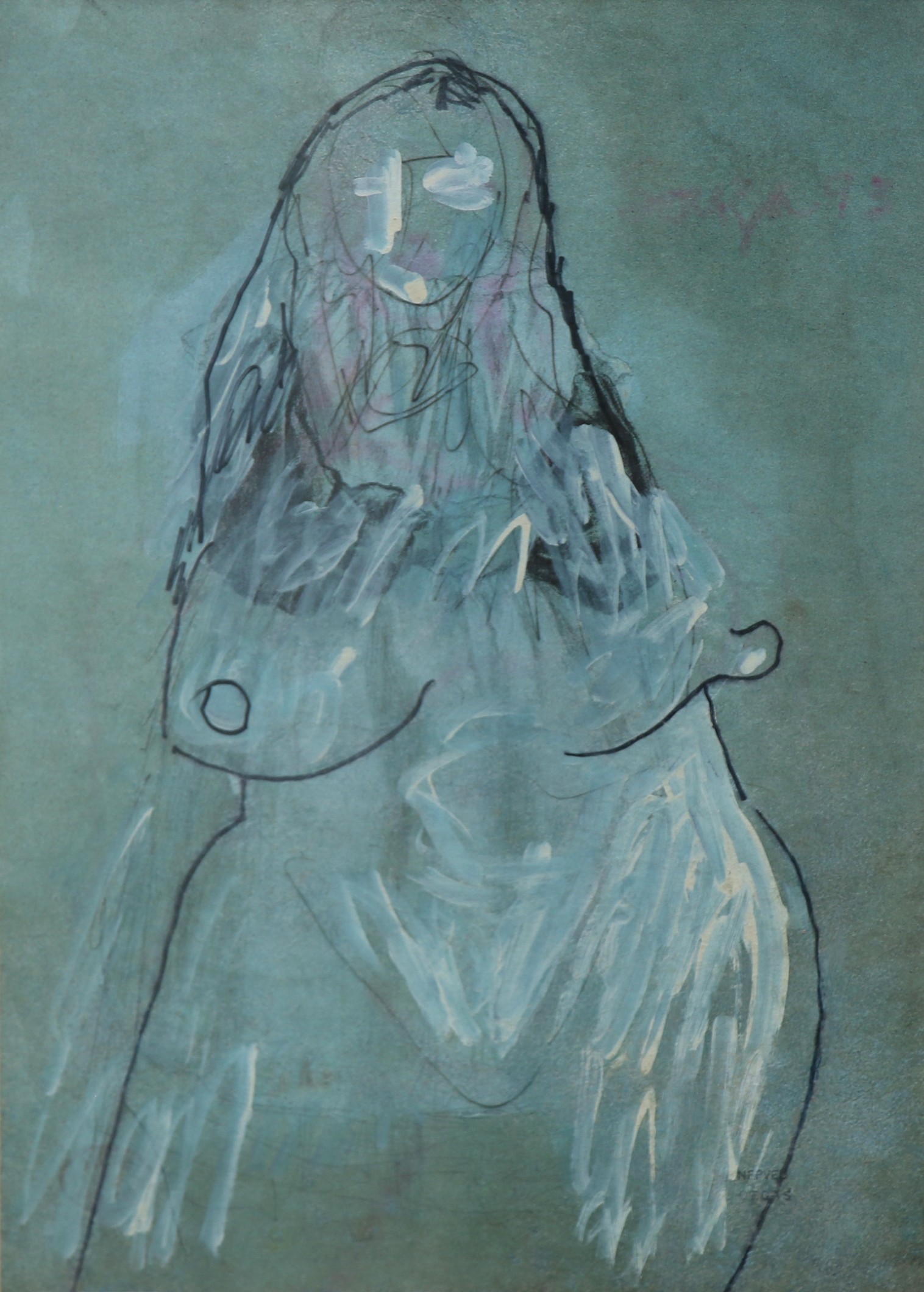


(12 April, 1924-28 March, 2002)
Francis Newton Souza (F.N. Souza) was born in Saligao, Goa, 1924. He is renowned Indian Modern artist. He was dismissed from school, then from his college, Sir J.J. School of Art in Mumbai, and later, as he often claimed, from his own country. While studying in Mumbai, he joined the “Indian Communist Party” but left it soon after. He joined the Progressive Artists’ Group, along with S. H. Raza, M. F. Husain and K. H. Ara, among others, which he helped start and spoke for, However, he later left to pursue his career in Europe. He lived and succeeded in London during the 1950s and ’60s before settling in New York.
Souza developed his unique, intense style by mixing Rouault's and Soutine's expressionism with Cubism and classical Indian sculpture. He used sharp lines and harsh humour in his work. He painted nudes, landscapes, and portraits in various styles and mediums, even creating a method called ‘Chemical Alterations’ to experiment with layering images on printed pages without damaging the glossy surface. His art was inspired by Goa’s folk art, Renaissance, Catholic themes, European landscapes, and modern styles. He often showed relationship conflicts and sexual tension, evocative sensuality that’s sometimes violent in his work. He used simple lines and crosshatching to add detail and structure to his drawings. His style was strongly influenced by Expressionism and Art Brut.
Souza exhibited his works solo and group shows around the world. He was one of the first painters from newly independent India to gain international fame and was a key figure in its “Avant-Garde” art movement.
Francis Newton Souza passed away in Mumbai on 28 March, 2002.
